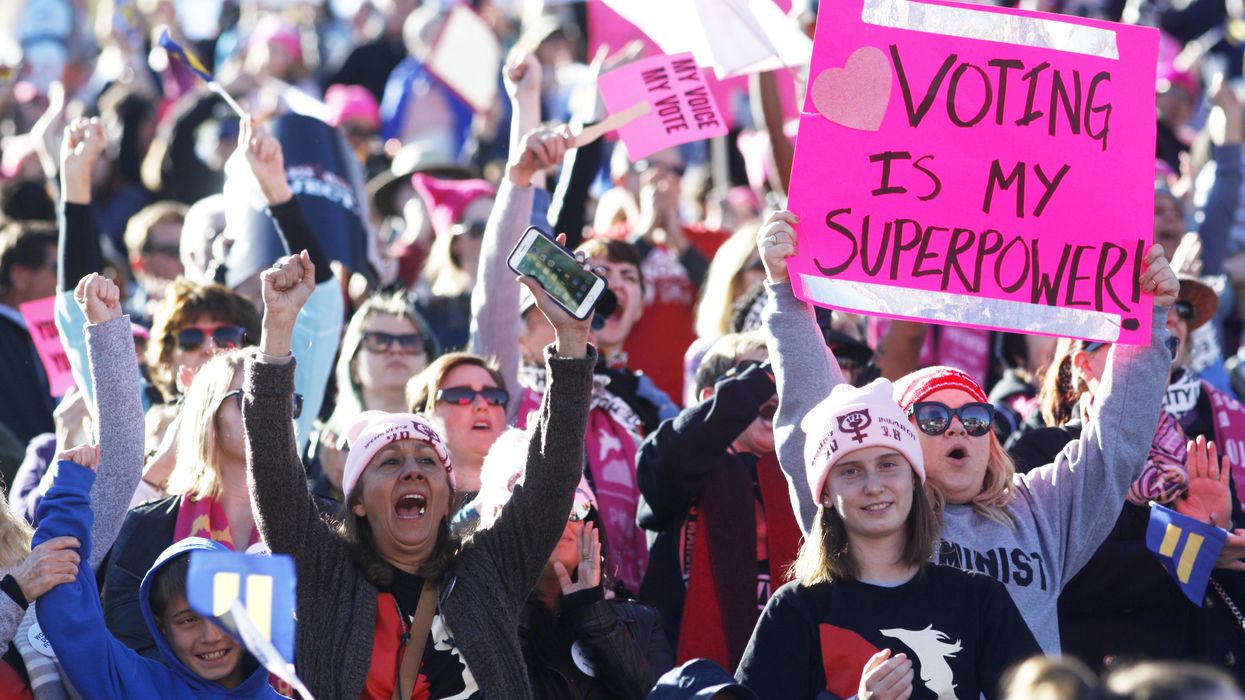For young pregnant people, these bans and funding cuts are even harder to navigate because of barriers to their independence. With the potential cuts to Title X programs, young people’s access to contraception will be even more limited. If they become pregnant when they don’t want to be, some states that still allow abortion have restrictions requiring consent from parents. With young people’s autonomy so limited, we must ensure young pregnant and parenting people have the support they need.
Reproductive justice is a human rights framework coined in 1994 by 12 Black women in response to the reproductive rights and health groups that excluded the lived experiences of those who have been marginalized. This concept includes the right to parent, the right not to parent, the right to parent children in safe and healthy communities, and the right to bodily autonomy. Young people, too, deserve reproductive justice.
What if young people had access to healthcare free from biases and shame?
A powerful misconception is that we are often just one decision away from shaping the course of our lives. But it isn’t the one individual decision. It’s the collective punitive reaction from society that stands in the way of young people getting the support they need. For the young pregnant person who is parenting, there is a systemic lack of support coupled with stereotypes that lead to negative outcomes.
As a child, my knowledge about the consequences resulting from decisions we make about our bodies was limited to the concrete and practical, such as skinning my knee in the neighborhood kickball tournaments when I ran around the bases too quickly. That knowledge quickly expanded when my older sister became pregnant as a teen, and I observed the organized shunning she experienced from family members to healthcare workers to teachers and friends. This was the first time I witnessed shame. I heard how family members talked about her pregnancy as a defining moment, as if any glimpse of a future was now extinguished. Those family members and friends who were “supportive” disappeared once my niece was born. It was at this moment that I decided that I wanted to offset that shame for her, for us, for every young Black girl who is navigating a pregnancy.
I did my best to be a supportive little sister as a child, standing up to all who spoke negatively about my sister and her choices. This experience stayed with me, and as a first year medical student, I founded Sisters Informing Healing Living Empowering (SIHLE) Augusta, renamed Choices Within Reach, an organization that works to support young Black mothers in Augusta, Georgia, through providing community, financial resources, and infant supplies. For the past seven years, in addition to my medical and residency training, we have worked to disempower the systems that shame and marginalize young people about their reproductive choices. Transforming that childhood rage to triumph, this ever-expanding sisterhood is my greatest accomplishment.
Now, as an OB-GYN and community organizer, I continue to hear the echoes of my sister’s story through my patients and the young people I serve in Georgia.
These stereotypes of young parenting people that go back to public condemnation of “teen moms” and “welfare queens” in the 1970s and 80s are still alive in the collective shunning of young Black pregnant people. In many schools, there is a “pregnant student” policy that states that the school won’t make accommodations for a pregnant student unless required by documented medical circumstances. High school students are not granted “maternity leave.” These policies are penal and don’t support the pregnant student’s success, especially when combined with isolation that the pregnant adolescent may be enduring within her community.
It is these punitive policies and attitudes that lead to statistics like only 50% of teen mothers receive their high school diploma by age 22, compared to 90% of teens who do not give birth in their adolescence. The lack of education and support makes it hard for them to find job opportunities, leading to a hard time making ends meet, and so on. This is a collective shunning of young motherhood.
These roots also shape our healthcare system. Just as young moms slip through the cracks of the community, they also often do in the healthcare system. Adolescent medicine providers try to close these gaps for young people. However, the gap widens when they become pregnant. Is it the OB-GYN who receives little to no training on how to specifically care for a pregnant teen or the pediatrician who has not specialized in pregnancy that is trying to care for the teen who is pregnant? When the gaps are felt by young moms, they might disengage from prenatal care, lose trust in their providers, and face poor health outcomes for the mother and baby.
This is especially true when the stereotypes of pregnant adolescents are woven into the implicit and explicit biases of the providers. These biases affect how their providers view them, the care they receive, and their outcomes. Kia, who experienced pregnancy at 16 years old, had her pregnancy confirmed by her pediatrician, who had been caring for her since she was an infant. However, once her urine pregnancy test was positive, there was an obvious disconnect. They told her she could no longer be seen in the office and was not offered any options counseling, OB-GYN references, or even an ultrasound. This experience led Kia to delay seeking prenatal care. What if the pregnancy was in the wrong location? What if there were complications? As we attempt to close the gap of maternal morbidity and mortality rates in the U.S., which are disproportionately higher in Black people, we must address the systems that increase risks faced by young Black parents.
The fight against the societal punishment of young Black parents is an issue of reproductive justice. In a nation where systemic barriers persist, the futures of young Black parents don’t come down to personal choices; they are intricately tied to the what kind of support, education, and resources they can access. It is far beyond time to restructure the narratives and fill the gaps society created for our young Black pregnant and parenting people.
What if we had culturally sound, group prenatal care that focused on and highlighted the needs of young, Black pregnant people? What if we built a community that came together to support young parents with childcare, financial resources, and school or job support? What if medically accurate, comprehensive sex education were available to all young people? What if young people had access to healthcare free from biases and shame? We can create the kind of world where we all have equitable access to the full spectrum of reproductive freedoms, no matter our age or location.




